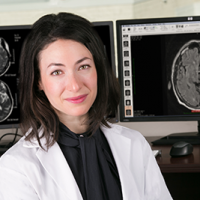It was a morning like any other. Kathy Thompson, a 52-year-old slim, athletic mother of four was out for a run before heading to work as a teacher. Suddenly she felt shortness of breath and tingling in her arms. She took herself to Emergency at VGH, and was shocked to find she had suffered a serious heart attack.
A tear in her heart artery was the cause: a condition called SCAD – Spontaneous Coronary Artery Dissection. Kathy also learned she had fibromuscular dysplasia (disease of abnormal cell growth in the arterial wall), a factor in 70-80% of women with SCAD.
“Kathy is typical of most women with SCAD,” said Dr. Jacqueline Saw, a VGH cardiologist. “They don’t usually have heart disease risk factors such as diabetes, smoking or obesity.”
SCAD was considered so rare in April of 2011 that Dr. Saw was shocked to diagnose three women in only two weeks. She knew she had to investigate. “SCAD was poorly diagnosed, but now we know what to look for and how to look for it,” Dr. Saw says.
Her efforts to educate and raise awareness of SCAD have resulted in what is currently the largest SCAD research sample in the world with approximately 180 women in BC with SCAD participating.
Continuing her research, Dr. Saw is launching a Canada-wide SCAD study and is the Principal Investigator planning to enroll approximately 1,000 women over three years. The goal is to learn the long-term outcomes, what causes it, discover if there are genetic factors and how to manage it.
Thanks to Canadian Institutes of Health Research, AstraZeneca, Servier, Abbott Vascular, St. Jude Medical, and other donors who have helped fund Dr. Saw’s ground-breaking research. More support is still needed to help improve the lives of women with SCAD.
Donate to advance research in helping women with this heart condition.

